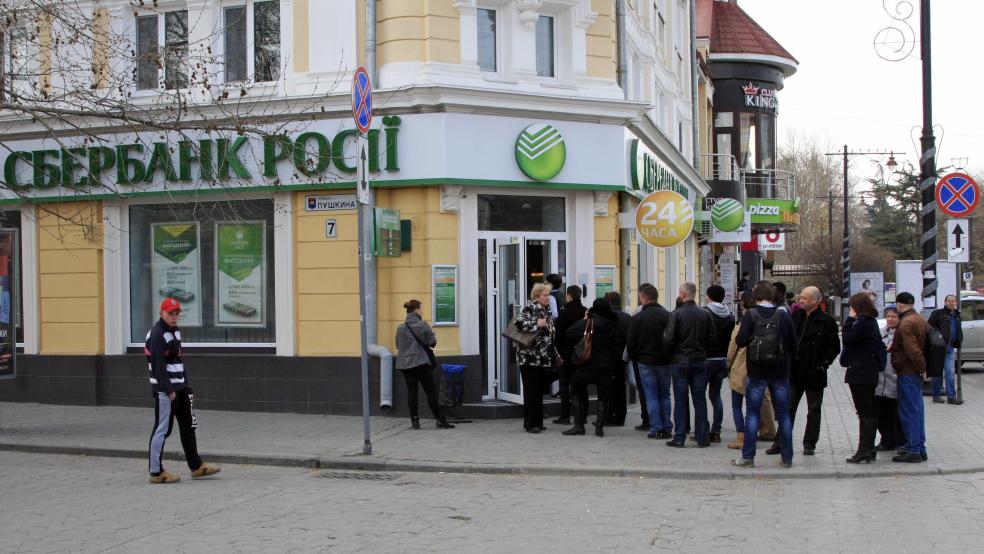On Monday morning, the Office of Foreign Assets Control, an element of the Treasury Department, announced the addition of seven people and 17 corporations to its list of “specially designated foreign nationals.” Being placed on that list carries a number of penalties, commonly referred to as “sanctions.”
But what’s the real impact of being on that list? We asked Kieran Beer, editor-in-chief of MoneyLaundering.com, an affiliate of the Association of Certified Anti-Money Laundering Specialists, to explain.
TFT: What is the Office of Foreign Assets Control, and what does it mean when they declare someone a “specially designated national?”
BEER: While it had a predecessor, OFAC was basically created during the Truman Administration to help administer an asset freeze targeting Communist China and North Korea. Now, under the International Emergency Economic Powers Act the President has the power to impose sanctions on threats to the United States that originate in a foreign country.
Related: Sanctions Further Crimp Finances of Russian Elites
In practice, he delegates that power to OFAC. They are required to do the necessary research and go through an approval process, but in the end they have the authority to blacklist people and businesses believed to be a danger to the U.S. by “designating” them as targets of economic sanctions.
TFT: What’s the practical impact of the sanctions when they are applied to individuals?
Beer: If all your money is in rubles it’s no problem, but any time you try to move money or make a transaction in dollars, they will try to find you. EU sanctions mean you would face the same problem transacting in Euros or Pounds. It’s a big deal if you want to be an international player.
Financial institutions are charged with knowing who their customer is so they can make sure they aren’t serving any individuals on the OFAC list. Many international wire transfers clear through the U.S., which means they would violate the sanctions. So if you are on the list, banks won’t do business with you. As long as the dollar is still the number one currency and dollar transactions have to clear through institutions in the U.S. or that do business with the U.S., the power of the US in imposing these sanctions will be far-reaching.
TFT: What about when applied to corporations?
BEER: Companies that contribute to the aims and ends of a state that has been deemed a threat to the U.S. are considered potential sanctions fodder. But going after the business partner that shields what they are doing, or other companies that do business with a sanctioned entity gets complicated. Companies have such web-like relationships with other corporations; they set up shell companies. It can be complicated, but the same principles apply as with individuals.
Related: Economic Sanctions are “Wounding Russia’s Economy”
By the way, what the administration is doing in Russia isn’t the full-blown set of sanctions available to them. They are really intended to send warning shots and annoy the people close to Putin.
TFT: What happens to a person or business in the U.S. who violates them?
Beer: The Dutch bank ING paid a $600 million fine for violating OFAC sanctions on Iran. ABN AMRO paid $500 million. They pay those fines because they want to continue to be able to do business in the U.S. and have transactions cleared through the U.S.
With the sanctions against Iran, for example, OFAC has been largely successful in making the institutions that didn’t abide by them pay. And that makes banks skittish about doing business with designated individuals.
TFT: How does the government monitor and enforce compliance with sanctions?
Beer: They really have done a huge job of deputizing the financial services industry. Banks now have departments that analyze all transactions for signs of money laundering. And, government is saying to some of the same bank compliance people, “Make sure there are no transactions going through for sanctioned individuals.”
Related: World Leaders Mull More Sanctions as Markets Punish Putin
Banks have gotten really good at this. When sanctions were announced on Libya, bank compliance departments didn’t sleep for a whole weekend, because the government charged them with making sure there were no Libyan assets tied to Qaddafi on their books and that they weren’t processing transactions for Libyans.
But it doesn’t mean you can’t fool them sometimes.
Top Reads from The Fiscal Times
- FCC Move Seen as Disaster for Online Start-Ups
- Grassroots Action Key to Unemployment Insurance Fight
- Little Credit Union Uncovers Massive Tax Fraud


